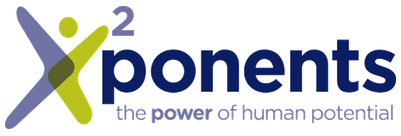What is Emotional Intelligence?
Charles Darwin painstakingly described the importance of emotional expression for survival and adaption. Thirteen years after The Origin of the Species, he published The Expression of the Emotions in Man and Animals.
In it, he writes, “expression is to the passions as language is to thought.”
Today we know that the ability to accurately interpret and express emotions is also critical to an organization’s bottom line.
There has long been consensus in managerial circles that Emotional Intelligence is a powerful indicator of how team members interact with each other and work together toward a common goal. Recently, HR departments have been slowly adapting Emotional Intelligence elements into their hiring models.
Why the push for highly Emotionally Intelligent employees?
Because Emotionally Intelligent team members collaborate more easily, respond better to stressful situations, and significantly influence the working dynamic of a team.
New research also indicates a direct correlation between EI and customer relations – including sales.
Science Daily recently reported a study by Case Western Reserve University’s School of Dental Medicine and Weatherhead School of Management.
According to the report, “IQ directly relates to how students perform on tests in the first two years of dental school. But emotional intelligence (EI) trumps IQ in how well dental students work with patients.”
In the Journal of Marketing’s “Emotional Intelligence in Marketing Exchanges” by Blair Kidwell, David M. Hardesty, Brian R. Murtha, and Shibin Sheng, the authors offered this conclusion: “Sales professionals with higher EI are not only superior revenue generators but also better at retaining customers.”
The report noted, “Emotionally perceptive sales professionals are more likely to recognize when a customer is bored or excited, interested or confused, and relaxed or annoyed.”
The study goes on to say, “High-EI sales professionals are likely to assess customer’s needs better, offer products that will satisfy them, describe products and services more effectively relative to the customer’s current emotional state, and avoid high-pressure selling, which can result from poor social skills.”
The group’s research also found that 75% of Fortune 500 companies promote EI and that 90% of top performers in virtually every industry have high EI.
But how does one determine the level of an individual’s EI?
Several assessments, available in either ability-based or subjective self-reporting models, are available to gauge EI proficiency.
The first step to gaining an EI advantage is to gain an accurate picture of an individuals strengths and challenges.
Xponents offers the Emotional Intelligence 2.0 self-assessment and personal debrief to help clients better understand their own EI standing and how to leverage those results with business (and personal) objectives.




